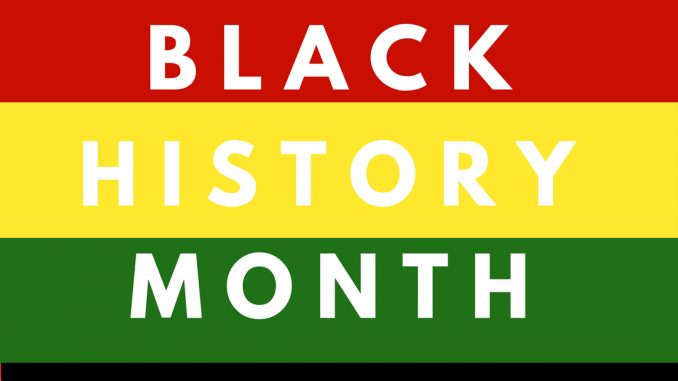
Black History Month: For the Therapeutic Treatment of African Americans
History
Generally speaking, African Americans have a history of mistrust of systems. Therefore, this population is appropriately skeptical of seeking services, including and often especially mental health services from trained professionals. Instead of accessing services from mental health professionals, many African Americans are more likely to talk to a pastor, clergy member, etc. or to a trusted friend or family member when traumatic, emotional or distressful situations arise. This mistrust of systems developed due to a long history of unfair, unequal and insensitive treatment that includes over medication and pathology to name a few. The Tuskegee Experiment is one well-known example of why African Americans, in general, have developed the view they have of systems. Additionally, within the African American culture exists the tradition of keeping family business among family, making African Americans less likely to share personal information with outsiders. It should be noted while strides have been made and this presentation has been changing, there still exist many African Americans who feel this way.
Therefore, when African American actually get to the point that they want to seek treatment and arrive to find a therapist who is of a different race, background, and culture, African Americans will typically be leery. They may have a host of ideas about therapy with such therapists (i.e., biased, overlook or minimize concerns, viewed in terms of stereotypes, will not understand them or African American traditions, behaviors, and practices, will be prejudiced or discriminate against them). African Americans can also experience trust issues when working with some Black/African-American therapists. This arises due to differences in education level, experiences and sometimes experiencing mistrust of those in their own race. Something that is a lingering result of division created among African Americans during slavery. Naturally, these sort of issues leaves the African American population, in general, to possibly feel like they have few they can turn to.
Working with African Americans Patients
To celebrate Black History Month I found it fitting to write about cultural concepts to consider when working with African Americans. Often colleagues from other backgrounds have asked about cultural considerations when working specifically with this population. Within my nearly twenty years of experiences as a therapist, I have had colleagues express an interest in learning how to more effectively work with African American clients. Some have even attended the same events I have to learn but stated they have not gotten much practical information from these events as they hoped. Instead, they received broad information regarding working with all people of African descent.
On the other end of the spectrum, some don’t see the importance of cultural aspects when working with those who are different culturally, ethnically, spiritually, etc. And some therapists conceptualize African American clients using ideas and references from the White/Caucasian culture. While the African American population has been removed from many of its African cultural roots, this population, nonetheless, does have its own set of unique cultural aspects that should be explored and considered in therapy sessions.
Therapeutic Considerations
The following is a list of ideas to consider when working with African American patients. This is in no way a comprehensive list. Instead, it serves a good place to start that can help Non-African American therapist and African American therapist alike make the necessary connection with African American clients that will make them want to return after the initial session and continue services.
- First and foremost a therapist who works with the African American population should be educated on African American common issues and experiences. Therapists should also be culturally self-aware (i.e., know one’s own discomfort, bias, anxiety, etc. when working with this population). A therapist also needs to be culturally self-aware, recognizing any privilege that applies to them (i.e., Male, White, Socio-economic status and/or educational privileges). This awareness may help one to be more culturally sensitive and empathetic to things that occur within this population that may not pertain to the therapist’s personal experience.
- Do not assume that every client that looks African American identifies as African American. The African American population is made of a number of diverse cultures and groups and some clients may be bi-racial and identify as bi-racial or may identify as African American. Als,o some who look Black may come from groups of other African descent, Jamaican, Dominican, etc. who may not consider themselves to be African American. Never assume. Always ask for the clients few of how he or she sees him- or herself culturally and how they identify themselves.
- Recognize that African American History does not begin with enslavement. Instead, African-Americans have a rich history that began in Africa, prior to enslavement in the United States and important tenets from Africa that are present in the African American community include: the idea that everything in the universe is interconnected, communal and self knowledge is key to mental health.
- A major point of importance to remember when working with African American clients (rather in therapy or for assessment) is not focusing on the deficit model approach, an approach that only views African-Americans in relation to or in contrast with Whites/Caucasians. Such a way of looking at African-American creates a “lesser than” approach or an approach that does not measure African-Americans by their own standards.
- Respect is a concept that is traditionally very important in the African American community. When building rapport with African American clients a display of mutual respect and an equal/collaborative relationship is very important or client is likely not to return to therapy with you and may not wish to access therapy services at all in the future based on what they may perceive as a bad experience. One can also show respect by using formal terms such as Mr., Mrs., Ms. etc. as many African Americans unless the clients says it is ok to do otherwise.
- Building trust is essential to therapy and when building rapport one can engage in small talk (and when appropriate use humor) to help put the client at ease.
- Do not be afraid to address sensitive issues (i.e. race, discrimination, the client’s possible feelings of mistrust in systems including mental health, etc.). Openly talking about these issues when appropriate to therapy can be helpful in letting the client know you care about him or her as a person. Likewise do not assume that everything the client experience has to do with his or her race and/or ethnicity. Follow the clients lead.
- The church is often a bug part of many African Americans lives, to the point that many African American seek treatment for emotional and relational (and sometimes mental and behavioral) issues at church and/or with their pastors. When possible and when the client desires spiritual aspects in therapy, incorporate spirituality and church based resources.
- Many African Americans place a heavy emphasis on family and community. When possible and appropriate and helpful to therapy, the use of the client’s extended network (which can include people who are not blood related but the client views as a family member) should be emphasized in treatment. If needed, bring key members of the clients network in for sessions.
- A concept to incorporate when working with African-Americans include using the word “healing” rather than “therapy,” as therapy is often viewed unfavorably in the African-American community and can carry a stigma. Therapy, or “healing” should also include consciousness raising, community engagement and community responsibility.
- Most importantly, it is virtually impossible to know everything about any culture, so if you say or do something that comes off as offensive, sincerely apologize and learn from the mistake so it is not repeated in the future.
In Conclusion
Each client is individual and therefore an assessment of that client’s culture should be conducted as not everything on the list will apply to all African Americans and each client is unique and may have cultural aspects that vary within the group. When working with African Americans ask yourself if you are using techniques to transform or alleviate issues faced by African American people or are you enforcing or confirming it? It is important to understand specifics of working with African-Americans in order to effectively be able to treat them in a culturally sensitive manner. Hence, in order for one to be a socially responsible practitioner when working with the African-American population, all races, including African Americans, need to be educated on the best ways to work with and empower African-Americans when providing therapy, or “healing.”
For more information check out these great links and resources:
The Huffington Post’s Black History is American History article by Yvette D. Clarke
The Chicago Defender celebrates Black History all year long.
Association of Black Psychologists – has lots of information and resources on areas related to African and Black Americans.
Working with African American Clients by Thomas A Parham, PhD
Counseling African American Adolescents: The Impact of Race, Culture, and Middle Class Status by Norma L.Day-Vines, Ph.D., James M.Patton, Ed.D., & Joy L. Baytops in ASCA’s Professional School Counselor Publication
Healthy Brain. Healthy Body. Happy Life.
Dr. J!

Be the first to comment